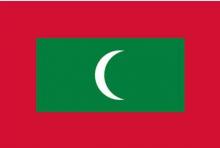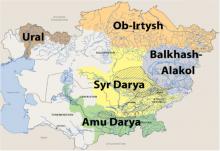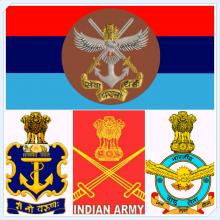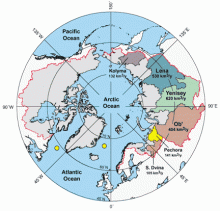-

After 25 years, for the first time, the election was held for the demerged Northern Provincial Council (NPC) on September 21. Though the Tamil National Alliance (TNA) victory with a thumping two-thirds majority was predicted, some thought the development route to ethnic reconciliation, as relentlessly articulated and pursued by the Rajapakse government, would give it some electoral benefits. It managed to win only 7 seats (18.38 per cent of the votes) in the 38-member council.
-

Nairobi, the capital of the African nation Kenya has witnessed one of the bloodiest terrorist events of recent times. Starting from September 21, the attack at the Westgate Mall in Nairobi which continued till September 24 resulted in more than 60 deaths and scores of people have been injured. Somali Jihadi terrorist group Al-Shabaab, an al Qaeda affiliated and a splinter of the Islamic Courts Union, (ICU) claimed responsibility for this four days long mindless mayhem.
-

The Syrian crisis has achieved the unachievable. It has compelled a communist country to talk peace and democratic/capitalist countries to talk war. Fortunately, it appears that the invasion of Syria by the US forces has been stopped, at least, temporarily. An agreement on chemical weapons stockpiled in Syria has been reached following the talks held in Geneva between the Foreign Minister of Russia, Sergey V. Lavrov, and US Secretary of State John Kerry.
-

As the September 07 presidential elections are getting closer in Maldives, three out of four presidential candidates and their political parties have tried to woo the security agencies and indulge in religion-based campaigning. These issues have dominated the campaigning of the two candidates - Ibrahim Gasim of the Jumhoree Party (JP) and Mohamed Waheed of the Gaumee Ithihaad Party (GIP). Instead of focusing on the socio-economic issues, these two parties have been trying to win. The first round of the general elections by dividing the society between Islamic and anti-Islamic forces.
-

The strategically significant Central Asian region, which feeds by two historically important river systems- Amu Darya and Syr Darya with credible hydrocarbon and oil resources, quite often attracts theories of 'resource conflict', 'water war' and 'great game'. However, cooperative management of strategic rivers to cater to the needs of riparian countries remains an unresolved issue. Presently, the UN is organising a two-day (August 20-21) High-Level International Conference on Water Cooperation (HLICW) in Dushanbe, Tajikistan.
-

On July 26, 2013, India’s dedicated meteorological satellite INSAT-3D was successfully launched into a Geosynchronous Transfer Orbit (GTO) by Ariane-5 VA-214 launch vehicle from Kourou, French Guiana. This satellite has been designed and developed by the India Space Research Organization (ISRO). The orbit-raising process of manoeuvres is underway to place it in the 36,000 km high Geostationary Orbit.
-

On 16 July 2013, the UPA government decided in principle to open up as many as 13 sectors for foreign direct investment—ranging from 49 per cent to 100 per cent—with different caveats. Some needed approval through automatic routes, some through the Foreign Investment Promotion Board (FIPB), and others with distinct riders.
-

There is good news from the Arctic for the shipping industry. According to data released by the Northern Sea Route Administration, the nodal agency of the Russian Federal Government, which manages the Northern Sea Route (NSR), 330 applications from ships have been received since April 2013 informing the agency of their plans to transit through the NSR this summer. Of these, 213 applications were approved and 51 rejected. The reasons for the rejection of applications and the fate of the balance of 66 applications have not been made public.
-

Local police are the best personnel who can prevent terror attacks by deactivating the sleeper cells and terror groups if they go after the basic principles of policing including patrolling, information gathering, and surveillance of suspects in the area concerned.
-

The genesis of 'Directed Energy Weapons' (DEWs) came up during the cold war when Karl Bendetson and the High Frontier panel of private citizens advised President Ronald Reagan for a crash program to develop missile defences. It was not just to defend against Soviet nuclear weapons but also because of strong indications that the Soviets were going to deploy 'powerful directed energy weapons' in space to gain control of space by using weapons like lasers, jammers etc. Towards the end of the Cold War, the US focused on ballistic missile defence and spending on DEWs.
Paxton ported to drupal by DropThemes.in